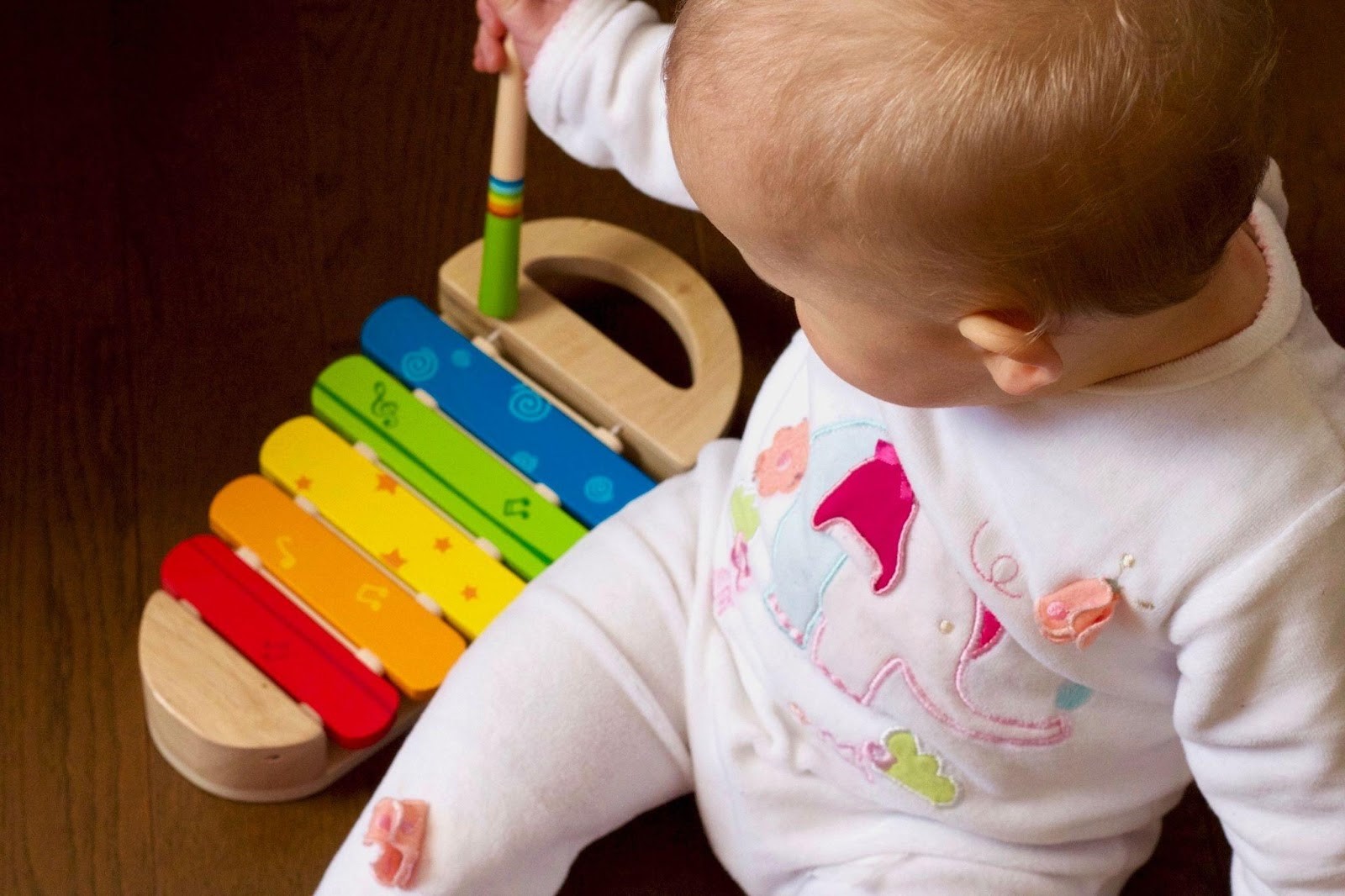Image by Jelleke Vanooteghem
In today’s fast-paced digital world, it’s easy for toddlers to become glued to screens, but there’s a timeless joy in gathering around a table with a board game. Board games for toddlers offer a valuable opportunity for learning, social interaction, and family bonding. As parents and caregivers, we must recognize the significance of these analog playtime activities and the positive impact they can have on our little ones’ development. In this blog post, we will explore the world of games for toddlers, why they matter, and some fantastic options to introduce to your little adventurers.
The Benefits of Board Games for Toddlers
Cognitive Development
Board games are great for toddlers’ cognitive development and are more than just fun. These games frequently involve counting, matching, sorting, and solving puzzles, which aid in the development of toddlers’ early maths and reasoning abilities. For instance, “Candy Land” introduces the idea of counting and colors, while “Memory” improves memory and concentration.
Social Skills
Toddlers learn vital social skills like sharing, collaborating, and taking turns by playing board games. Positive social connections later in life are built on the foundation of these abilities. Together, playing games teaches toddlers how to communicate, listen to others, and understand what it means to win and lose gracefully.
Language Development
Toddler board games frequently focus on communication and language development. Playing verbal interaction games, like Chutes and Ladders, helps toddlers express themselves, learn new words, and comply with simple instructions. These activities greatly enhance the development of children’s language.
Fine Motor Skills
Fine motor skills are needed for manipulating game pieces, rolling dice, and moving cards on the board. Toddlers can develop their motor skills and hand-eye coordination by playing board games. They develop their fine motor skills, which are necessary for games like writing and buttoning clothes, as they carefully pick up small game pieces and move in small, precise movements.
Attention Span
The short attention spans of toddlers are well known. Playing board games gives kids a planned and engaging activity that helps them concentrate for a longer period of time. This can be particularly beneficial for preparing kids for school, where focus and attention are crucial.
Emotional Development
There is potential for emotional growth in board games for toddlers. They give young children the chance to experience the full spectrum of emotions that come with winning and losing, as well as frustration, excitement, and joy. Toddlers benefit from these experiences by growing emotionally resilient and learning how to handle both success and failure.
Family Bonding
Family time is often enhanced by playing board games together. They produce long-lasting memories and give parents and kids meaningful time to bond. The family’s emotional ties are strengthened by sharing smiles, enjoying successes, and offering support when losing.
Choosing the Right Board Games for Toddlers
Choosing the right board games is essential for toddlers to be appropriately engaged and challenged. When selecting games for your toddlers, keep the following things in mind:
Age Appropriateness: Make sure the game is made for the age range of your toddler. To ensure that the rules and content are appropriate for their developmental stage, look for games labeled as “toddler” or “preschool.”
Simplicity: Board games for toddlers should have simple rules and minimum pieces. This makes it simpler for kids to fully understand the game’s concepts and have fun with it without feeling overwhelmed.
Durability: Choose games with robust components that can withstand some wear and tear because toddlers can be rough with their toys.
Educational Value: Look for games that foster learning, such as those that teach numbers, colors, forms, or other elementary concepts.
Engaging Themes: Choose board games with themes that your toddler will enjoy. A game with a topic they like will keep toddlers more interested, whether the theme is animals, cars, or fairy tales.
Top Board Games for Toddlers
Now that we’ve highlighted the benefits of board games for toddlers and provided tips for choosing the right ones, let’s explore some of the best board games for toddlers:
Candy Land
A classic favorite among toddlers, Candy Land is a colorful and simple game that teaches color recognition and counting. Players move their pieces along a winding path of candy-themed spaces, encountering characters like King Kandy and Queen Frostine along the way.
Chutes and Ladders
Another timeless classic that helps toddlers in counting and number recognition is Chutes & Ladders. Players advance by climbing ladders and regress by sliding down chutes as they race to the finish line.
The Sneaky, Snacky Squirrel Game
In addition to being adorable, this game is great for developing fine motor skills. Toddlers fill their logs with colorful acorns using tweezers in the style of squirrels. It’s a fantastic game for counting and teaching colors.
Hoot Owl Hoot!
The cooperative game Hoot Owl Hoot! promotes collaboration and planning. Toddlers work to help the owls in returning to their nest before sunrise. It’s an excellent way of introducing the ideas of collaboration and problem-solving.
Memory
Memory is a well-known matching game that improves focus and memory. Toddlers flip over the cards to locate pairs of animals, shapes, or other items. It’s a game that’s simple to modify to your toddler’s preferences.
My First Orchard
A cooperative game designed especially for toddlers is called My First Orchard. In order to gather fruit from the orchard and put it in baskets before a crafty crow snatches the crop, players have to work together. This game encourages teamwork and teaches color recognition.
Hungry Hungry Hippos
Toddlers who enjoy physical activity love to play this exciting game. Players compete to see who’s hungry hippos can eat the most marbles. It’s a game that combines both excitement and fine motor skills.
Guess Who?
A great game for language learning is Guess Who. To determine the mystery character of their opponent, players ask yes-or-no questions. Toddlers can enjoy a simplified version with pictures instead of words despite the fact that it’s normally aimed at slightly older children.
Tips for Playing Board Games with Toddlers
Board game play with toddlers can be relaxing, but it also calls for patience and adaptability. Here are some tips to make playing games fun for both you and your little one!
Start Simple: Start with the easiest games and gradually introduce more difficult ones as your toddler’s skills and understanding develop.
Short Sessions: Keep game sessions brief because toddlers have short attention spans. Playing several short games is preferable to playing one long game.
Be Patient: It’s possible that toddlers don’t always follow the rules or take turns politely. Instead of focusing on perfect adherence to the rules, be patient and encourage their efforts.
Use Positive Reinforcement: When your toddler makes good moves or follows the rules, praise and reward them. They are inspired to remain interested and to keep studying as a result.
Model Good Sportsmanship: By teaching your toddler how to win and lose warmly, you may teach them how to be good sports. Insist that the primary goal is all about having fun.
Make It Fun: Above all, keep in mind that having fun and building a bond with your toddler is the primary goal. Never pressurize them to play a game they’re not having fun with. Instead, attempt a different game or activity.
Conclusion
Board games for toddlers are more than simply a fun activity; they are important tools for education, social growth, and strengthening family ties. The benefits of these analog playing activities are numerous, including improving emotional stability, fine motor skills, and social and cognitive development.
You may create educational and fun game experiences for your toddler by choosing age-appropriate games. So get everyone together, clear the table, and let the adventures begin. The goal of board games for toddlers is not only to roll the dice or move the pieces but to create lifelong experiences.
Related Post
Exploring the Five Love Languages: Understanding the Essence of Connection














